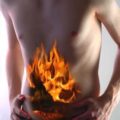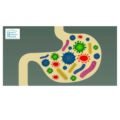-
-
-
Pregnancy: Increased blood volume and hormonal changes can weaken vein walls.
-
Obesity: Excess weight puts pressure on veins, leading to poor circulation.
-
Genetics: A family history of varicose veins significantly raises your chances.
-
Hormonal Influences: Hormones such as estrogen can relax vein walls, especially during puberty, pregnancy, or menopause.
-
Unhealthy Lifestyle: High-salt diets, smoking, and excessive alcohol consumption also contribute to the risk.Prolonged Standing
Jobs requiring you to stand for long periods can increase the pressure in your leg veins. Studies estimate that around 20% of young adults may experience some form of vein inflammation during their lifetime.Understanding Varicose Veins: Causes, Symptoms, and Risk Factors
When the valves within the veins fail to function properly, blood flow becomes sluggish, leading to swelling in the superficial veins. As a result, these veins lose their ability to efficiently transport blood, often causing discomfort and visible changes under the skin.
While varicose veins most commonly affect the back of the legs, they can appear in other parts of the body as well. This condition is part of a broader category of disorders related to blood circulation, including arteriosclerosis, hypertension, and thrombosis.
Interestingly, thrombosis can sometimes present with symptoms similar to varicose veins. However, varicose veins have distinct and pervasive signs:
Common Symptoms of Varicose Veins
-
Aching or cramping in the legs
-
Dark blue or purple bulging veins
-
A heavy sensation in the legs, especially after prolonged standing
-
Skin ulcers and occasional bleeding
Who Is at Risk of Getting Varicose Veins?
Several factors can increase your risk of developing varicose veins. According to research, prolonged standing is a key contributor. Occupations that involve standing for extended periods—such as teaching, nursing, or retail work—are especially high-risk.
-
-
-

The Top 9 Triggers That Worsen or Cause Varicose Veins
-
Prolonged Standing
Occupations that require standing for extended hours—such as teaching, healthcare, or retail—can put excessive pressure on leg veins. To minimize this, take breaks to sit down, maintain good posture, and incorporate daily movement like stretching or light running. -
Being Overweight
Excess body weight places more pressure on superficial veins, reducing their efficiency in transporting deoxygenated blood back to the heart. This can cause blood to pool, resulting in swelling, heaviness, and aching. -
Tip: Even moderate weight loss can improve blood flow and reduce the risk of varicose veins.
-
Canned Foods
Processed and canned foods are often high in sodium, which leads to water retention. When the body holds on to excess fluid, blood volume and pressure increase, causing veins to expand and swell.Tip: Opt for fresh, whole foods and low-sodium options whenever possible.
Understanding Varicose Veins: Causes, Symptoms, Triggers & Treatments
When the valves in veins don’t function properly, blood begins to pool in superficial veins, causing them to swell. This condition, known as varicose veins, affects blood circulation and often causes visible, twisted veins — commonly in the legs.
Common Symptoms of Varicose Veins
-
Aching or cramping in the legs
-
Dark blue or purple bulging veins
-
Heaviness in the legs, especially after prolonged standing
-
Skin ulcers and occasional bleeding
Who Is at Risk?
Several factors increase the likelihood of developing varicose veins:
-
Occupations involving prolonged standing
-
Obesity or excess body weight
-
Pregnancy and hormonal changes
-
Genetics (family history)
-
Unhealthy diet (high salt, low fiber)
-
Smoking and alcohol use
Top 9 Triggers That Worsen or Cause Varicose Veins
1. Prolonged Standing
Jobs that require standing for long hours increase pressure in the leg veins.
Tip: Take breaks to sit, stretch, and walk. Regular light exercise like walking or yoga can help.
2. Being Overweight
Excess weight increases pressure on the veins, impairing circulation.
Tip: Losing even a small amount of weight can improve symptoms and reduce risk.
3. Canned Foods
High sodium in many canned foods leads to water retention, increasing blood volume and vein swelling.
Note: Not all canned foods are harmful, but limiting them is a safer choice.
4. Chocolate
Regular chocolate (especially milk chocolate) may cause constipation, which puts pressure on veins in the lower body.
Tip: Dark chocolate contains bioflavonoids that can help reduce vein inflammation—but moderation is key.
5. Alcohol
Alcohol increases blood pressure and dilates blood vessels. Long-term use may lead to liver issues, making blood thicker and circulation less efficient.
Result: Swelling of blood vessels, including varicose veins.
6. Salt
Sodium causes the body to retain water, increasing blood volume and pressure on veins.
Tip: Opt for low-sodium alternatives and increase potassium-rich foods to balance fluid levels.
7. Excessive Carbohydrates
Refined carbs (sugar and starch) can create a homeostatic imbalance, especially if water intake is low.
However: Complex carbs (like fiber) help reduce blood pressure and support vascular health.
8. Exercise Imbalance
Too little physical activity leads to poor circulation and water retention. On the other hand, excessive weightlifting can overstrain veins.
Tip: Stick to moderate-intensity cardio and avoid heavy lifting if you’re at risk.
9. Smoking
Tobacco contains harmful chemicals that damage vein walls and reduce blood flow efficiency, contributing to varicose vein development.
Medical Treatment Options for Varicose Veins
If lifestyle changes aren’t enough, several medical interventions are available:
1. Sclerotherapy
This procedure involves injecting a solution (often a saline-based or chemical agent) into the affected vein. The solution irritates the vein, causing it to scar and close. Over time, the vein fades as blood reroutes through healthier veins.
-
Success Rate: Up to 80%
-
Common Use: For small to medium-sized veins
2. Radiofrequency Ablation (RFA)
RFA uses ultrasound to guide a catheter that emits radiofrequency energy into the affected vein. This heat collapses the vein walls, closing them off.
-
Blood is naturally rerouted to healthier veins
-
The collapsed vein eventually fades as the body heals
Conclusion
Varicose veins can be uncomfortable and unsightly, but with the right knowledge, they can be prevented or effectively managed. Lifestyle adjustments—like regular exercise, maintaining a healthy weight, and minimizing processed foods—combined with advanced medical options, offer a comprehensive approach to tackling this condition.

- Doctors can also use laser treatment for varicose veins. Laser treatments are either classified as simple laser treatment or endovenous laser treatment. Usually, a focused beam of light damages the varicose vein. As a result, a scar forms. The vein disappears, leading to formation of a new healthier vein. However, a new vein would take almost a year to form.
- If other methods fail, you can consider having a surgery. Although your legs will improve, you will encounter side effects like burning and itching.
Genes play a major role in the occurrence of varicose veins. Studies show that if a parent gets affected, the son has a 25% chance whereas the daughter has a 60% chance of being affected.
Early diagnosis helps prevent chronic cases of skin ulcers and bleeding. Practice a healthy lifestyle by avoiding the 9 trigger things that cause varicose veins.
The most important thing to keep in mind’s to avoid overdoing of the therapies. Excessive exercise, excessive standing, excessive sitting and resting is dangerous. So over all have a healthy active lifestyle with healthy balanced food intake.
RD Neha Kava
Latest posts by RD Neha Kava (see all)
- 3 Supplements To Try That Will Improve Your Health - March 15, 2025
- 3 Tips to Adding Supplements to Your Diet - March 14, 2025
- Beginners Running Tips – How to start getting in shape with the most efficient exercise out there - March 13, 2025



